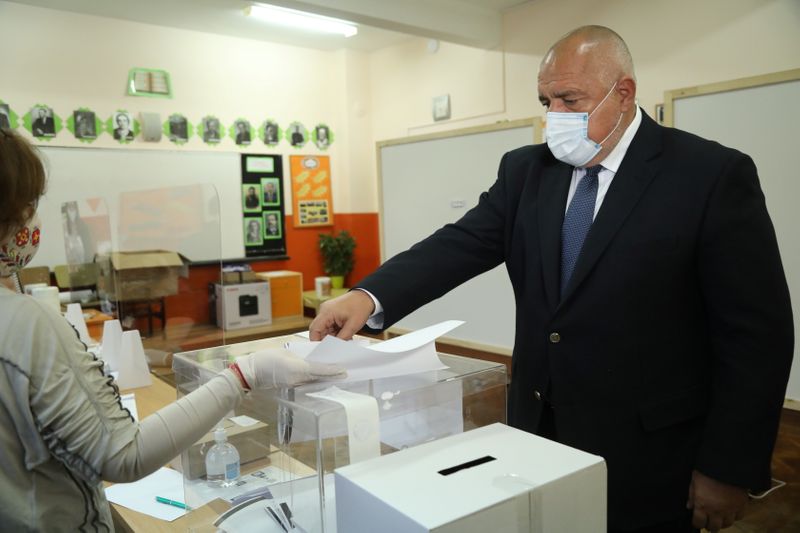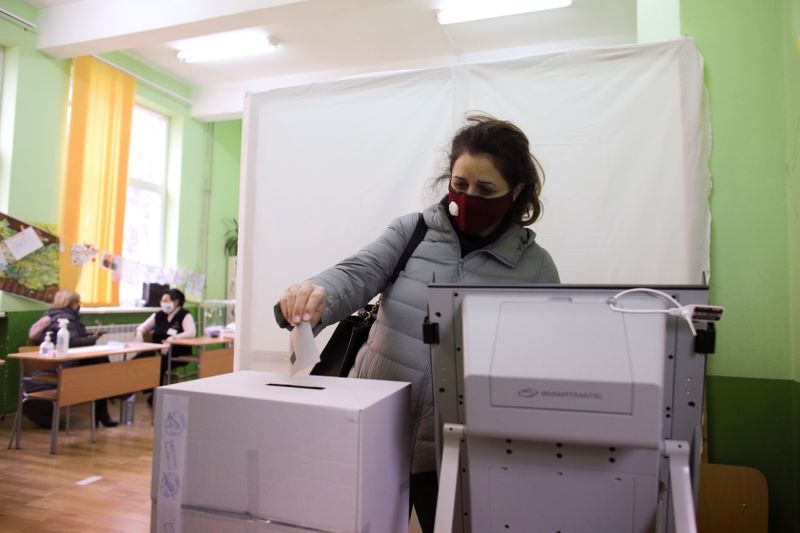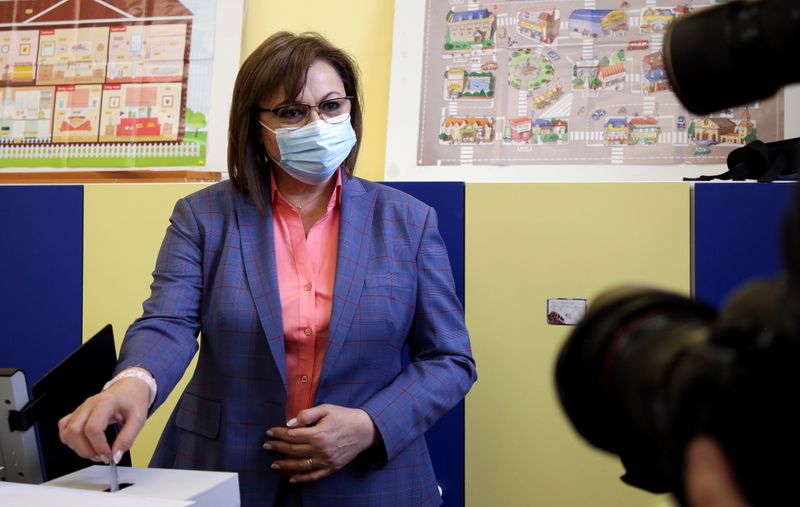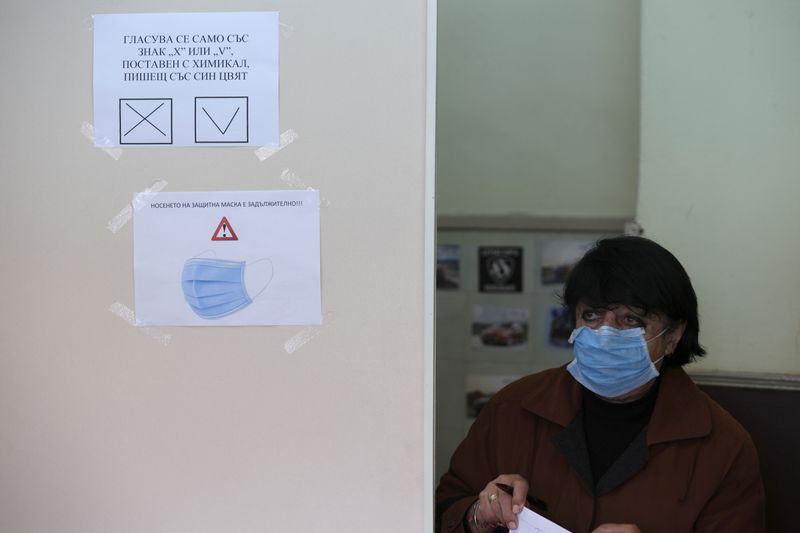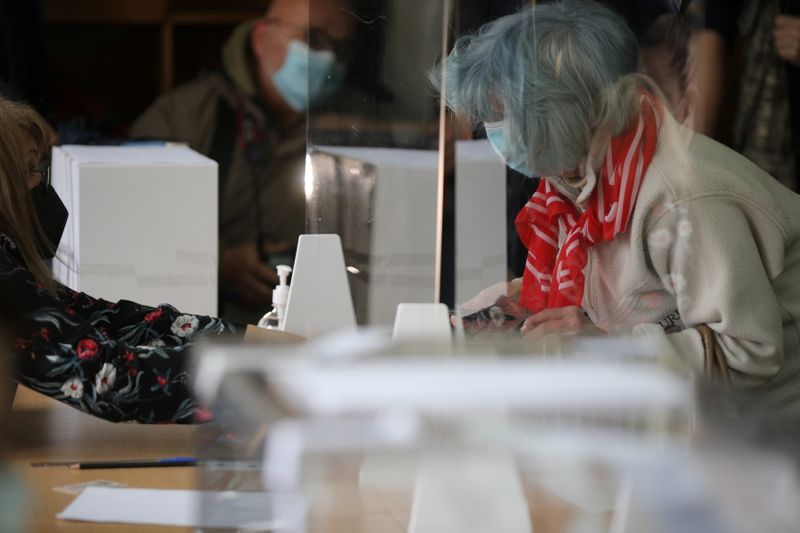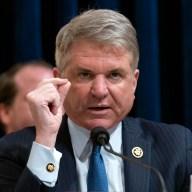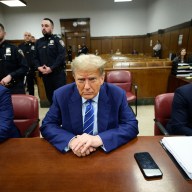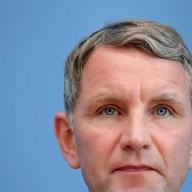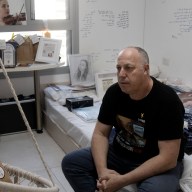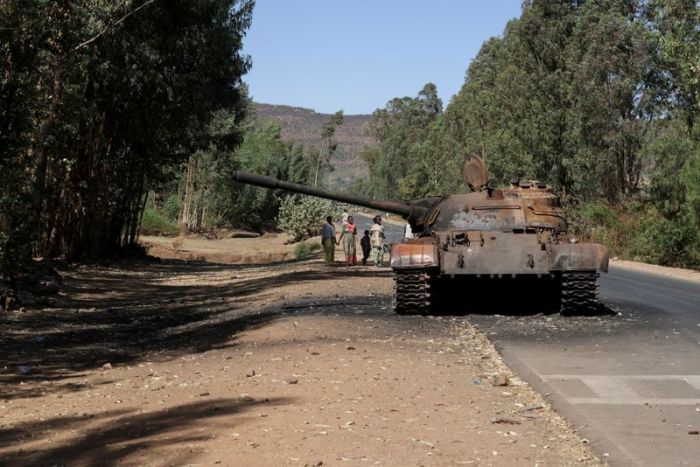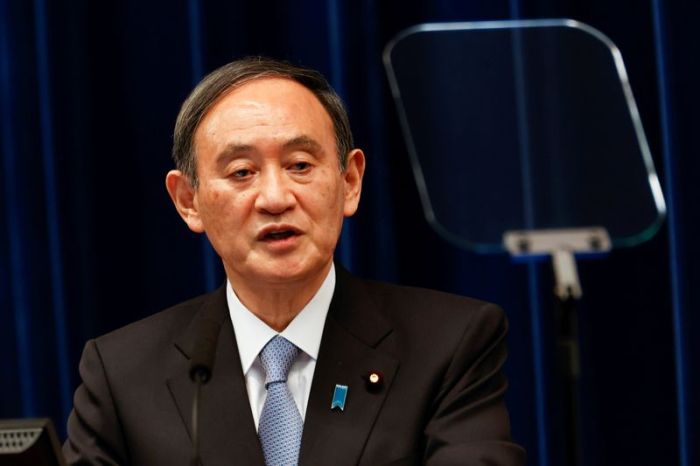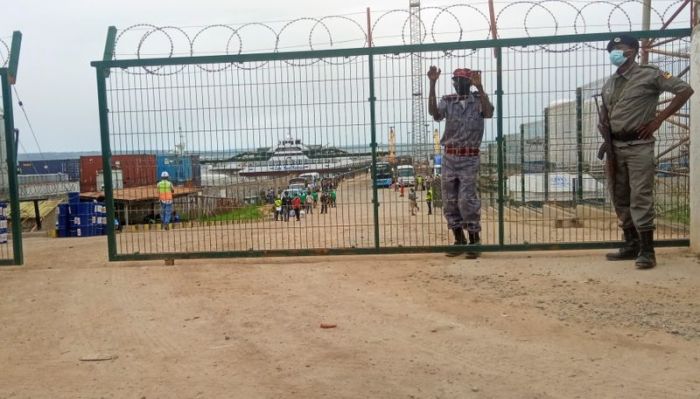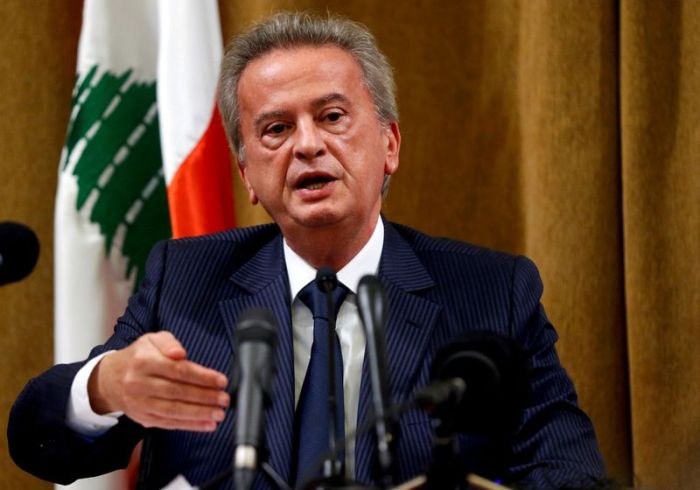SOFIA (Reuters) -Bulgaria’s Prime Minister Boyko Borissov will have difficulty holding onto power, after a surge of votes in an election on Sunday for anti-establishment and anti-corruption parties that want him out.
Parallel count of the vote by pollsters forecast his centre-right GERB party to remain the largest grouping in parliament, but with only 25.2% of the vote, compared with the 33.5% it won four years ago.
Behind it, a new anti-establishment party founded by a TV host and singer finished second with 17-17.5%, and two other protest parties that reject Borissov were also forecast to enter the parliament, taking over the opposition Socialists.
After a decade of dominating Bulgarian politics, Borissov has few natural coalition partners.
Weeks of talks, or even another election, cannot be ruled out, meaning Bulgaria, the European Union’s poorest member, may have difficulty tapping the EU’s 750 billion euro ($884 billion) coronavirus Recovery Fund.
Speaking before official results were released, Borissov said GERB had won the vote and called on opposition leaders to consider a broad, expert government that would focus on bringing EU cash to the country battered by the coronavirus pandemic.
Such a government could have a limited life until December, Borissov said.
“I offer you peace. I offer you to put forward experts, to take responsibility,” he said in a video streamed on Facebook. “This is my proposal for all, enjoy the results for two, three days and then consider – what is stable and what is not.”
A former fireman and bodyguard, Borissov, 61, sought to showcase his successes in modernising Bulgaria’s creaking infrastructure in a low-key campaign after his popularity was eroded last year by massive rallies against corruption and the power of oligarchs.
“We are seeing the outlines of one new Bulgaria, where Borissov can continue to win elections with his huge administrative and financial resources, but cannot hold on to power,” said Hristo Ivanov, a leader of the anti-graft Democratic Bulgaria party.
SURGING POPULISM
Complicating Borissov’s coalition-building options is the emergence of the anti-establishment There is Such a People party of popular TV host and singer Slavi Trifonov which has appealed to people fed up with graft-prone political elites.
Trifonov, 54, whose concerts peppered with patriotic songs have attracted thousands has ruled out governing with either GERB, the Socialists, or the ethnic Turkish MRF party.
His popularity dates back to the 1990s, when he was a “chalga” singer. The pop-folk genre is a cultural phenomenon which has attracted controversy over its influence on the young often blamed for a surge of populism in politics.
Democratic Bulgaria, one of biggest forces in the massive protests last summer, won some 10-11%, the polls showed. Another protest party, Stand Up! Mafia Out! will also enter the next parliament.
Borissov’s government has presided over a 36% increase in the average monthly salary to 1,468 levs ($882), has kept public debt low, and secured entry to the “waiting room” for joining the euro currency.
But its failure to tackle endemic corruption and reform the judiciary brought thousands of protesters onto the streets for months during 2020.
The protesters accused Borissov of cosying up to local oligarchs and funnelling EU aid to businesses close to GERB, allegations he denies.
Bulgaria ranks as the EU’s most corrupt member state according to Transparency International. A recent U.S. State Department report on human rights highlights serious problems with judicial independence and media freedom in the country.
The ethnic Turkish MRF party won 10-11%, polls showed, while the nationalist VMRO party, which is GERB’s coalition partner, is on the 4% threshold to enter the parliament.
($1 = 1.6628 leva)
(Reporting by Tsvetelia Tsolova; Writing by Justyna Pawlak;Editing by Gareth Jones, Timothy Heritage, Alison Williams, Peter Graff and Diane Craft)

